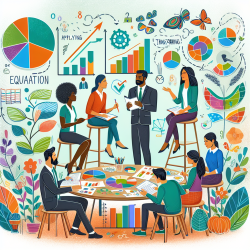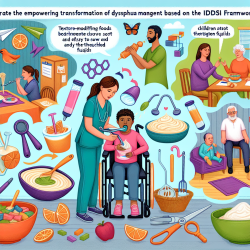In the educational world, data is often seen as a powerful tool for making informed decisions. However, data alone is not enough to address the systemic inequities present in our schools. This is where the concept of Critical Data-Driven Decision Making (CDDDM) comes into play, as highlighted in the research article “I knew it was a problem before, but did I really?”: Engaging teachers in data use for equity.The study by Dodman et al. (2023) provides a framework for educators to engage in data use for equity. It emphasizes the need for professional development that integrates both data and equity literacies. Here are some key takeaways and practical steps for educators looking to implement these findings in their own practice.
Understanding the Framework
The framework presented in the study integrates data literacy and equity literacy. It encourages educators to:
- Identify systemic inequities in their classrooms and schools.
- Engage in critical reflection and inquiry to understand the sociopolitical context of education.
- Use data to inform decisions that promote equity and disrupt inequitable practices.
Steps to Implementing Data Use for Equity
Implementing this framework involves several key steps:
1. Conduct an Equity Audit
An equity audit helps identify patterns of inequity within a school. It involves collecting and analyzing data related to race, class, gender, (dis)ability, and language. This process can reveal disproportionalities and help educators understand the root causes of inequities.
2. Engage in Professional Development
Professional development should focus on building both data and equity literacies. This involves:
- Learning how to collect, analyze, and interpret data.
- Understanding the impact of systemic and structural influences on student outcomes.
- Developing skills for culturally responsive and relevant teaching.
3. Foster a Collaborative Environment
Collaboration among teachers and administrators is crucial for effective school change. This includes:
- Creating spaces for open dialogue and critical reflection.
- Building trust and a sense of shared responsibility for addressing inequities.
- Supporting each other in implementing changes based on data insights.
4. Take Action and Monitor Progress
Using the insights gained from data analysis, educators should develop and implement action plans to address identified inequities. It's important to:
- Set specific, measurable goals.
- Monitor the impact of interventions.
- Adjust strategies as needed based on ongoing data analysis.
Encouraging Further Research
While this framework provides a solid foundation, it's essential for educators to continue exploring and engaging with research on data use for equity. By staying informed about the latest findings and best practices, educators can refine their approaches and make a more significant impact on their students' lives.
Conclusion
The journey towards equity in education is ongoing and requires a commitment to continuous learning and improvement. By integrating data and equity literacies, educators can use data not just to identify problems but to drive meaningful change in their schools.To read the original research paper, please follow this link:
“I knew it was a problem before, but did I really?”: Engaging teachers in data use for equity.










